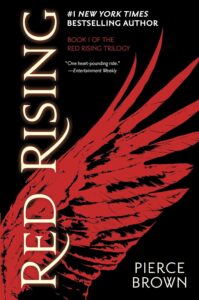Summary The Lost Apothecary begins with a forgotten history. Nestled deep within the maw of eighteenth-century London is a clandestine apothecary that serves a peculiar kind of customer. Stories of a shadowy Nella circulate among the city’s women, who...
Summary
The Lost Apothecary begins with a forgotten history. Nestled deep within the maw of eighteenth-century London is a clandestine apothecary that serves a peculiar kind of customer. Stories of a shadowy Nella circulate among the city’s women, who purchase carefully crafted poisons from her to use against the domineering men in their life.
However, the apothecary’s future is put in danger when her newest client, a bright twelve-year-old, makes a catastrophic error that sets off a series of events that reverberate across the ages.
Aspiring historian Caroline Parcewell, in the present day London, runs away from her own demons and spends her tenth wedding anniversary alone. In a startling turn of events, her life unexpectedly intersects with the apothecary’s when she discovers a clue to the unsolved apothecary murders that plagued London 200 years ago. Not everyone will survive.
The Lost Apothecary is a subversive and addictive debut novel about secrets, retribution, and the amazing ways women can save each other despite the passage of time. It is filled with crackling tension, memorable characters, and searing insight.
Review
I don’t have time for those kinds of people, sorry if that sounds harsh. The dark and enigmatic Nella, who understands Caroline is doing many women a huge service even as she feels awful for the men she is killing, is a wonderful contrast to Caroline’s foolishness.
Her clients are women who have been abandoned, mistreated, or betrayed; this isn’t precisely a reason to kill someone, but in those days, women had few options and many of them thought that this was their only option. For a few days, Eliza makes friends with Nella and assists her at her shop.
However, Eliza is the most aloof of all the characters; instead, she advances the plot and keeps the action going as it becomes apparent that Nella is becoming increasingly ill with an unnamed sickness.
Writer Sarah Penner
Even though I was annoyed with Caroline, I thought her plot was the most intriguing since she was actively trying to figure out what had happened to the missing pharmacist. She begins by “mudlarking,” which is essentially just sifting through the Thames River’s muck, and meets a helpful librarian who assists her in finding old maps and possible locations that may lead to further information about this glass bottle and its unusual etchings.
Caroline has a deep love for common people throughout history, but she naturally gave this all up to become a bride since, well, it seems that you can’t have it both ways (ugh). Although Caroline’s account of the final few days of Nella’s shop requires us to suspend disbelief, it was an enjoyable little ride with some unexpected turns that I was glad to experience.
This is a plot-driven book, but Nell’s backstory made it feel well-rounded and drew me in. As a result, I was astonished at how invested I felt in each woman’s safety when the finale became fatal.
Learning about the traditional treatments they employed, as well as the influence and potency of plants and flowers on our own health, was my favorite aspect of this book. A few (safe) recipes are given at the conclusion of the book, which contributes to its atmosphere.
However, I almost wish they had been included earlier in the novel; it would have put me right back in Nell’s apothecary. Nevertheless, I found this book to be enjoyable and quick to read, engaging me with a variety of literary devices and producing yet another historical fiction piece that I would gladly suggest to others.
The Lost Apothecary Buying Options
More Historical Fiction
The Bridgertons: Happily Ever After The Hotel Nantucket by Elin Hilderbrand (2022): A Captivating Tale of Love, Loss, and Ghosts The Things We Cannot Say by Kelly Rimmer














